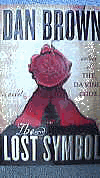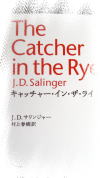| 1日 |
Win Lesson 木曜日の夜のレッスンを始めることになった。対象は、英検準一級から一級レベル。日曜日のレッスンへの入門コースとなっている。テキストもNHKの実践ビジネスは使わずに、オピニオンを採用した。これなら、通訳訓練法を活用しやすく、レッスンが終わった後で、トピックの内容に関する意見を英語で述べてもらうのに適している。 |
||||||
| 2日 |
Win Lesson We covered the topic of the newly introduced judicial system, lay judge system, where 6 lay judges with 3 professional judges will try serious criminal cases to decide whether a defendant is guity and hand down a sentence. It is said under this system guilty verdict is likely to be reached and the sentence tends to be harsh one. |
||||||
| 3日 menu |
|
||||||
| 4日 menu |
Vocabulary for the next Win lesson proximity, qualm,quandary, racket, rationale, rendition, solace, spree, stipend, tantrum, twinge, abject, acrimonious, adroit, astute, blatant, commensurate, complacent, conducive, derisive, desolate, despondent, dire, disparaging, dissident, docile, exponential, forensic, formidable, fraught, futile How large word-hoard do I have now and how much vocabulary should I have in order to read comfortably? The answer is around 20000 words. I think it astronomical figures as the words once hoarded in my temporal lobe seem to slip out easily before newly input ones settle in. |
||||||
| 5日 menu |
|
||||||
| 6日 menu |
The Catcher in the Rye I compared the two translations, one by Nozaki Takashi and the other by Haruki. The most impressive part of Haruki's translation I've read so far is putting "boy?" into "Ahmu" or "あ~む", for which Nozaki gave "Boya" or "坊や." "Boya"is within the scope of my assumption, while Ahmu is not. Who but Haruki on earth could think of giving "Ahmu" to "boy"? He must have thought Holden felt something provoking and exasperating about the term "boy", which old Spencer used too often in their conversation. Haruki, I think, tried to find another patronizing Japanese word which really gets the boy's nerve. It had to be something other than "坊や." |
||||||
| 7日 menu |
The Catcher in the Rye "Do you feel absolutely no concern for your future, boy?" "Oh, I feel some concern for my future all right. Sure. Sure, I do." I thought about it for a minute. "(1)But not too much, I guess. Not too much, I guess." "You will," old Spencer said. "(2)You will, boy. You will when it's too late." (1) The repetition of the same phrase in the original could result in the same tactics in translation, as well. Hakuki, however, avoided this awkwardness, which I really appreciate. (2) Instead of present tense, Haruki used present perfect tense for the phrase when it's too late., which, I think, best fits asr its translation.「でもそのときにはもう手遅れになっておる。」) |
||||||
| 8日 menu |
Latin One of my acquaintances studies Latin, from which Romance languages, such as Aragonese, Corsican, Catalan, French, Italian, Portuguese, Romanian, Spanish and others, are descended. Many other European languages have inherited and acquired much of their vocabulary from it. I remember being advised by a multi-linguist to study Latin if I wanted to be a good command of English and other European languages. 日本語への影響 ad hoc アド・ホク : 暫定の、臨時の(アドホック) et cetera (etc.) エト・ケテラ :その他(エトセトラ) ラテン語由来の商号や固有名詞 プリウス(トヨタ・プリウス) :prius は「~に先立って」 ベネッセコーポレーション :bene + esse で「良く存在すること」 湘南ベルマーレ : bellum(美しい)+ mare(海) |
||||||
| 9日 menu |
Next Thursday Lesson - The lay judge system should be discontinued. ・It's like allowing amateurs to perform surgery. ・Will lay people on a Japanese-style jury argue with the dark-robed judges on the panel? ・We have a tradition of submissiveness to authority, known as “okami” in Japanese. ・Culturally, we Japanese dislike expressing opinions in public. I think it will be very difficult to disagree with the professional judges. Above mentioned opinions are major reasons to oppose the lay judge system. The Japanese are not used to expressing their ideas and arguing with others in public and traditionally they have avoided any conflictions, trying to live in harmony with their neighbors. In this respect, it is likely that most Japanese refrain from rebuttals and follow the opinions of those who assert aggressively and in a loud voice. And that if the judges rush to the conclusion, they are inclined to risk the verdict of guilt, I'm afraid. |
||||||
| 10日menu |
Home-made cuisine According to Longman Advanced American Dictionary, “cuisine” means “the food cooked in a particular restaurant or hotel, especially when it is very good.” Here I dare to use the term cuisine instead of dish for it properly describes what I ate last night though neither at a hotel nor at a restaurant. One of my acquaintances invited us to a feast. We had a good time enjoying a delicious food and talking a lot late at night.     |
||||||
| 20日 menu |
Tsubaki Festival This is a picture of Belgian waffle, which I managed to get after one and half hours waiting. There is a spring event celebrating the arrival of spring, known as Tsubaki San. It is said that a warm season doesn't come until Tsubaki San is over. On my way to worshipping Tsubaki shrine, I found a long queue just in front of a cozy pastry shop, from which sweet perfume wafts in the early-spring breeze. I ate it with hot chocolate and this waffle is worth waiting for more than an hour. You could buy it at Refrain-Refrain, five-minute walk to the west from Tsubaki shrine. Don't miss it.  |
||||||
| 21日 menu |
The Society for Testing English Proficiency (Eiken) There are some tips for compulsory speaking test of Eiken: When asked with "How ~", you should begin with "By doing~", and to describe the situation of Picture B, you should use the expression "He is thinking of doing~, because …." or "She can't ~, because …"and so on. I wonder if it is the teacher's role to teach our students such set skills just to pass the test. It is true that with these skills the students could give some set patterns of answers but it doesn't follow that they have learned the practical speaking ability. What should teachers aim at ? |
||||||
| 22日 menu |
TOEIC Speaking Test "The workplace in Korea has largely relied on TOEIC and TOEFL scores to be the barometer for English proficiency. But Korean employers are becoming progressively frustrated with the Korean applicant pool who have high TOEIC scores (ie., mass memorization of useless vocab), but piss-poor ability to actually communicate. A few years back, the trend began for employers to slowly move away from TOEIC being the standard." This article is quoted from the interview with Samsung HR. You might think employers are phasing out these two English tests. The fact is, however, they are beginning to use "TOEIC Speaking tests" to aid in their hiring efforts. High scores on TOEIC could assure recruiters of mass memorization of useless vocabulary. Big names just don't like it, but want more of practical communication skills to serve well in business scenes. |
||||||
| 23日 menu |
Steve Jobs (chief executive officer and co-founder of Apple Computer and of Pixar Animation Studios) I watched Steve Jobs' speech delivered at the commencement of Stanford University on the popular video-sharing website YouTube. Overwhelming but not preachy is his speech with an occasional touch of humor. One of the most impressive parts in his speech is as follows. After I read the script again and again, I asked myself the same question and I'm afraid the answer has been No so far. "I have looked in the mirror every morning and asked myself: If today were the last day of my life, would I want to do what I am about to do today? And whenever the answer has been "No" for too many days in a row, I know I need to change something." |
||||||
| 24日 menu |
Steve Jobs' Golden Lessons "You know, we don’t grow most of the food we eat. We wear clothes other people make. We speak a language that other people developed. We use a mathematics that other people evolved… I mean, we’re constantly taking things. It’s a wonderful, ecstatic feeling to create something that puts it back in the pool of human experience and knowledge." “I would trade all of my technology for an afternoon with Socrates.” “Your time is limited, so don’t waste it living someone else’s life. Don’t be trapped by dogma – which is living with the results of other people’s thinking. Don’t let the noise of other’s opinions drown out your own inner voice. And most important, have the courage to follow your heart and intuition. They somehow already know what you truly want to become. Everything else is secondary. |
||||||
| 25日 menu |
Individual Examination at Ehime University (1) 愛媛大学 和訳問題抜粋 1) Every European knows, as a matter of historical fact, that in Europe, wealth could only be acquired at the expense of other human beings, either by conquering them or by exploiting their labor in factories. 2) In consequence, no European associates wealth with personal merit or poverty with personal failure. 3) Thanks to the natural resources of the country, every America, until quite recently, could reasonably look forward to making more money than his father, so that, if he made less, the fault must be his; he was either lazy or inefficient. レベルとコメント:Standard. Candidates will find it a bit difficult to translate "personal merit." According to Ehime Shinbun, sample answers say "個人的な利点." I think, however, it should be "その人の評価、優秀さ." (2) 愛媛大学 英作問題抜粋 「田舎を散策してみたいと思った時にでも、田舎に辿りつくために、満員電車に乗り、何マイルも郊外を旅する必要もない。」 英作問題のレベルとコメント:Not bad but some clumsy Japanese sentences:何マイルも…, 郊外を旅する "何マイルも…" should have been "何キロも…", because it is in Japanese sentence. I don't think we use "mile" in our daily lives to describe the distance, do we? Is Yamanote-sen always overcrowded even during off-hour or holidays? Then, the whole sentence should be something like "田舎を散策してみたいと思った時にでも、電車に30分も乗っていれば、目の前には田舎の景色が広がっているのだ。 (3) 愛媛大学 文法問題のレベルとコメント: mediocre, conventional |
||||||
| 26日 menu |
What he likes - Steve Jobs' touch of humor - In his speech at Stanford University he showed a quote that went like: "If you live each day as if it was your last, someday you'll most certainly be right." If you can make out the punch line of this joke, you certainly have a fairly good sense of humor and a good command of English. In my understanding, "you'll most certainly be right." has double meanings. 1) you'll end up to be somebody. 2) you are bound to die. |
||||||

